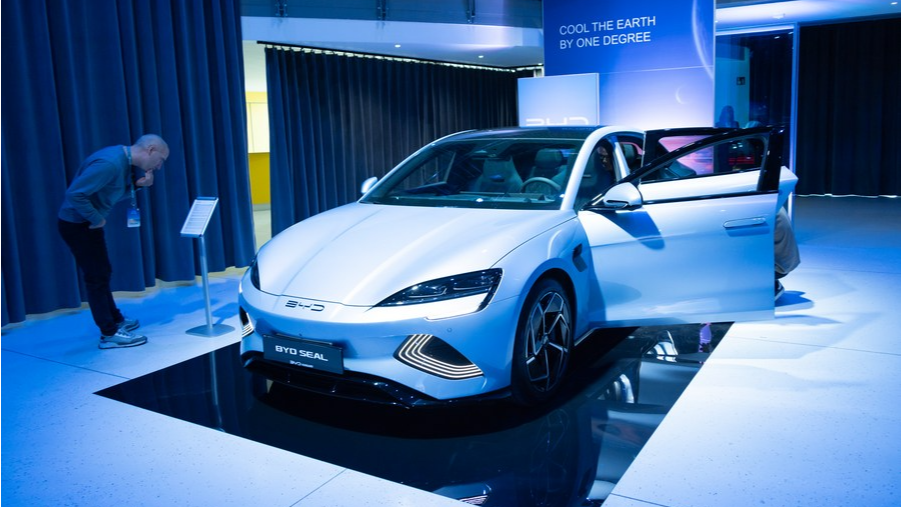
BEIJING – The latest US decision to raise tariffs on a host of clean energy products from China is not just economically myopic but also detrimental to its own transition to a greener economy.
Tariff hikes on Chinese products including electric vehicles (EVs) and lithium-ion batteries – de facto tax increases on US consumers – are expected to considerably inflate the costs for accessing reasonably-priced, high-quality Chinese green products, thus slowing down the deployment of EVs, solar technologies and other renewable energy systems in the world's largest economy.
The tariffs will potentially increase the costs and challenges of the US shift toward a carbon-free future. According to Colorado Governor Jared Polis, they will represent "a major setback for clean energy".
The example of lithium-ion batteries well underscores this point.
READ MORE: UN expert calls for lifting of restrictions
Customs data reveals that since 2020, the United States has been the largest importer of lithium-ion batteries and parts from China. Highlighting the significance of this green import, American automakers have emphasized that the lack of access to cost-effective batteries and battery materials from China could render EVs unaffordable for an average US consumer.
While trade protectionism may initially offer advantages to the US domestic green industries by shielding them from foreign competition, its long-term effects could be harmful
Moreover, the palpable uncertainty stemming from the evident protectionist stance of the US government risks dampening investor confidence in the country's renewable energy market.
Such uncertainty spells a slowdown in innovation and impedes progress toward sustainability goals, causing a blow to US aspirations for a cleaner, more sustainable future.
The adverse effects of tariffs on the US green agenda are not merely speculative; history has starkly proven it.
According to a 2019 report by the Solar Energy Industries Association, previous US tariffs on imported solar cells and modules resulted in the cancellation of 10.5 gigawatts of solar installations across the US. This amount could have powered 1.8 million homes and cut 26 million metric tons of carbon emissions.
The tariff hikes came at a time when the US, one of the world's major emitters of carbon dioxide which rejoined the Paris Agreement just three years ago, has been making a series of green pledges.
In April, the US administration issued a tailpipe pollution rule to raise the share of EVs from less than 8 percent last year to as much as 56 percent by 2032, an important step for the country to achieve a net-zero emissions economy by 2050.
The pursuit of these targets, however, could face a setback as the White House appears increasingly fixated on leveraging and weaponizing its tariffs in the green sector.
As a Washington Post opinion piece published this week pointed out, "... it will be harder to achieve that objective" of getting total emissions down to half of the 2005 levels by 2030, President Biden's goal, "if American drivers cannot get their hands on the ultracheap EVs made by China's BYD".
ALSO READ: Solar sector shrugs off tariff action
While trade protectionism may initially offer advantages to the US domestic green industries by shielding them from foreign competition, its long-term effects could be harmful. Over time, diminished efficiency and stifled innovation due to the lack of healthy competition are poised to undermine the sector's ability to adapt and thrive.
Tackling climate change is a global imperative, requiring unified action from every nation. The collaboration between the world's top two economies holds immense promise and potential in this endeavor.
Efforts to ensure the widespread availability of green products hinge upon the reduction of trade barriers, rather than resorting to protectionist measures or perceiving one another as adversaries.


